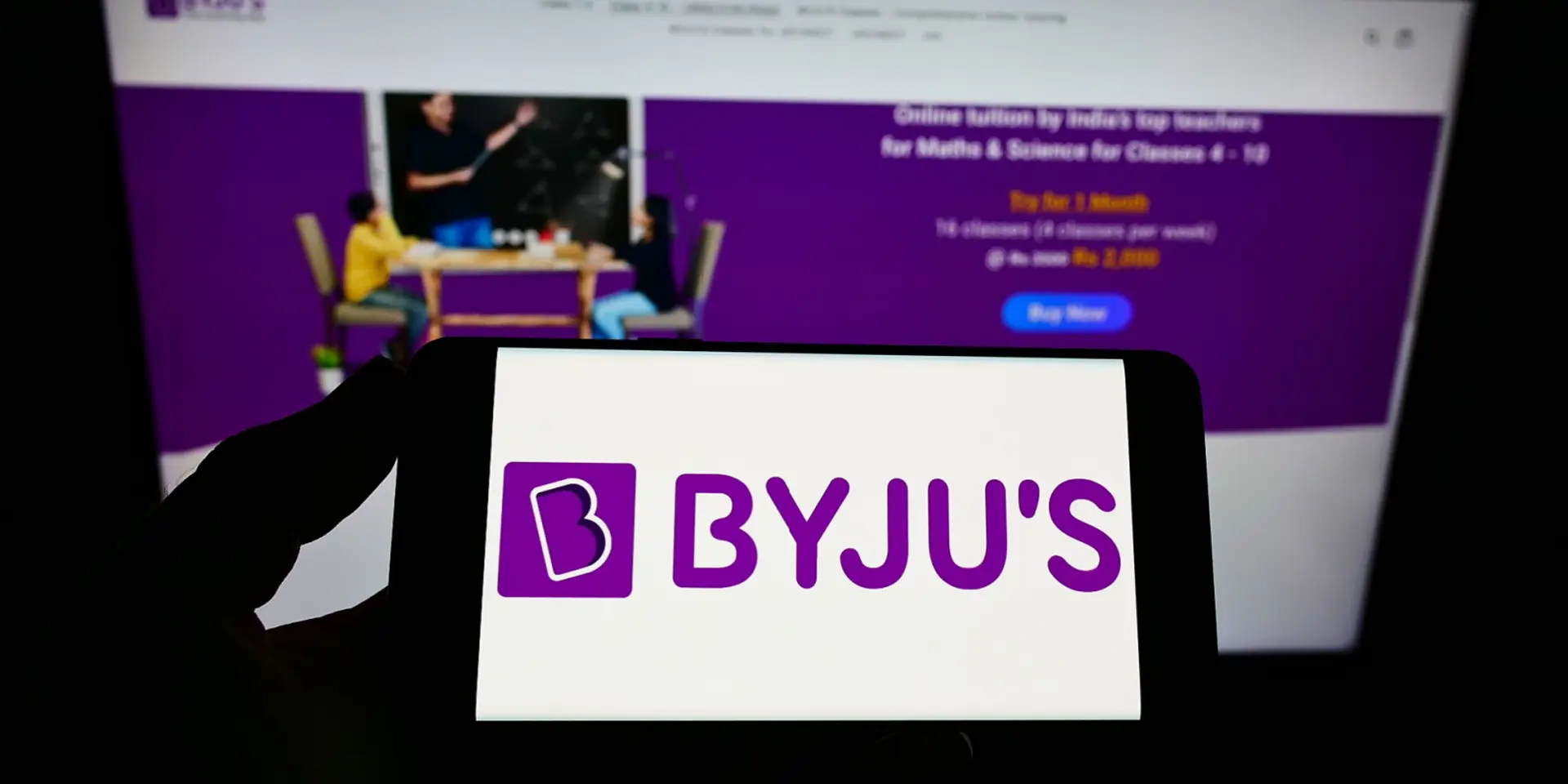BYJU'S knocks at NCLAT door against NCLT's insolvency order; seeks urgent hearing
The development comes after the recent order of NCLT that allowed the cricket board BCCI's petition for initiating insolvency proceedings against BYJU'S.
Crisis-ridden has moved the National Company Law Appellate Tribunal (NCLAT) against the recent order of NCLT that allowed cricket board BCCI's petition for initiating insolvency proceedings against the once-famed edtech company, sources said.
Sources privy to the development said the edtech company is seeking an urgent hearing on the matter.
BYJU'S did not comment on the issue.
According to sources, BYJU'S on Thursday moved the appellate tribunal, NCLAT, contesting the recent order of NCLT's Bengaluru bench that had admitted the cricket board's plea to start insolvency proceedings against the parent company Think and Learn Pvt Ltd after the edtech firm failed to pay Rs 158.9 crore dues.
Founder and CEO Byju Raveendran will report to the resolution professional. NCLT has appointed Pankaj Srivastava as the interim resolution professional.
BYJU'S had previously sponsored the Indian cricket team.
Earlier this week, BYJU'S had said it is hopeful of reaching "an amicable settlement" with the Board of Control for Cricket in India (BCCI).
A BYJU'S spokesperson said, "As we have always maintained, we wish to reach an amicable settlement with BCCI and we are confident that, despite this order, a settlement can be reached. In the meantime, our lawyers are reviewing the order and will take the necessary steps to protect the company’s interests.
BYJU'S was once valued at $22 billion, but the reopening of schools after the easing of pandemic restrictions led to its unravelling. BlackRock recently slashed its valuation of $1 billion.
The company's troubles began when it missed financial reporting deadlines two years ago and fell short of revenue projections by more than 50%.
In February, a group of investors in BYJU'S parent company, including Prosus and Peak XV, voted to remove Raveendran as CEO during an extraordinary general meeting (EGM), citing allegations of "mismanagement and failures". Raveendran has denied allegations and disputed the vote's validity.
The investors and founders have been separately engaged in a legal battle, even as the company saw job cuts and shrinking business.
NCLT invited creditors, employees, and vendors to file claims against BYJU'S.
At the heart of the dispute is the 'Team Sponsor Agreement' that BCCI and BYJU'S entered into on July 25, 2019. According to this agreement, BYJU'S got the exclusive right to display its trademark/brand name on the kit of the Indian cricket team, place advertisements during the telecast of cricket series, and hospitality and non-hospitality tickets for every ticketed match organised by BCCI, according to the NCLT order.
"As consideration, the Corporate Debtor (BYJU'S) was required to pay a fee to the Operational Creditor (BCCI)," it said. "The Corporate Debtor was the Sponsor of the Indian cricket team as per the above arrangements and availed the Services for a period up until March 31, 2023."
After March 31, 2022, BYJU'S made payment in full only against one invoice for the India-South Africa cricket series held in June 2022, amounting to Rs 25.35 crore but failed to pay for subsequent invoices.
A bank guarantee of Rs 143 crore was encashed but that was not sufficient to cover the entire amount, it said, adding the sponsorship fee for series/tours, including that of South Africa, Australia, Sri Lanka, New Zealand, Asia Cup, and ICC T20 between August 2022 to January 2023, amounting to Rs 158.9 crore remain unpaid.
"It cannot be disputed that the Corporate Debtor has availed the services of Operational Creditor," the NCLT order said.
"Corporate Debtor had never disputed the fact that it was required to pay the agreed Fee as per the arrangement between the parties. However, despite having acknowledged the dues, the Corporate Debtor has failed to pay and instead, the Corporate Debtor repeatedly kept requesting the Operational Creditor for an extension of time for payment."
Edited by Suman Singh







